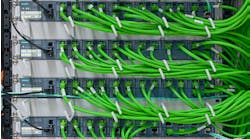Smart Industry: What is the motivation behind launching the Data Fellows Program?
Andrew: Professional data-science and analysis can often be best learned through informal mentoring. The ability to turn to peers and colleagues for new ideas or approaches when you're challenged by a data set or particular problem is what makes people successful in this field. Yet, many data leaders within for-purpose institutions don't have this kind of support. They're often the only person on the data “team” and don't have mentors and coaches supporting them or building their skill set. That's what we are trying to address with the Data Fellows Program. We want to build some of those informal mentor networks.
Smart Industry: What will participants gain from this initiative?
Andrew: Participants will be exposed to a wide range of data-science tools and methods during their week at the Uptake offices in Chicago. We will be going over everything from building dashboards to data security to agile development for data science. The goal is to expose them to a wide range of places they might want to explore further. My highest aim, though, is that the network they gain while here is the most valuable takeaway. Not only will they connect with one another, but they'll have mentors to support them as they undertake a new data project within their organization.
Smart Industry: Among the descriptions of this program is this line: "The fellow is the data leader at the social enterprise, not necessarily the entrepreneur in the organization." Why is this important?
Andrew: We wanted to make this for the people in the trenches working to build data-driven organizations. These are the people we feel can benefit most from this kind of training and mentorship.
Smart Industry: How does mentoring work?
Andrew: In many ways, we will allow the fellows and mentors to decide what their relationship looks like. We imagine having regular check-ins between the fellows and their mentors, but beyond that, we hope that the fellows turn to their mentors when they run into problems or questions that they are unsure of how to answer.
Smart Industry: You tout using "data for good." What does that mean?
Andrew: When we talk about "data for good" at Uptake, we are talking about the application of data to solve social problems. We are building tools that nonprofits, social enterprises, governments and more can use to further their missions. Through this fellowship, we are building the capacity of organizations to use and develop these kind of data tools themselves.
Chicago-based predictive-analytics firm Uptake is launching its Data


